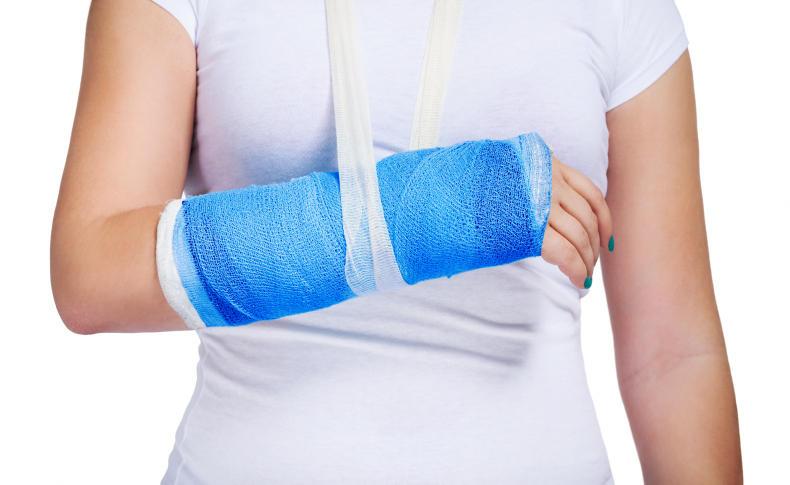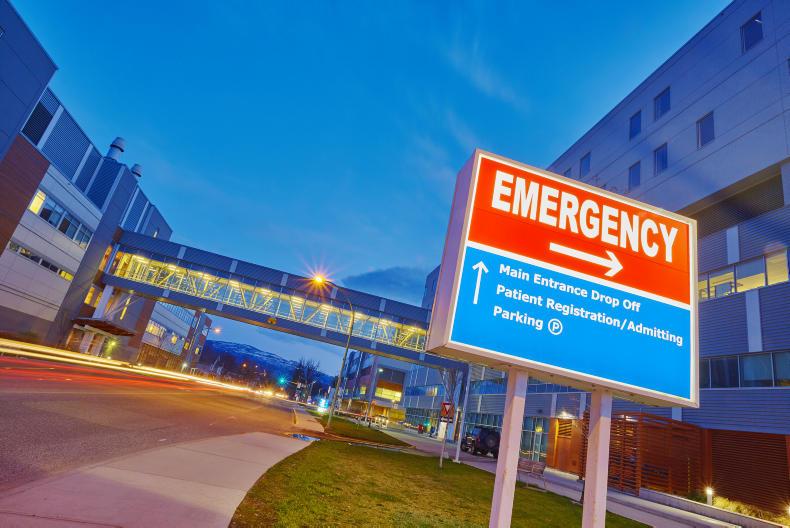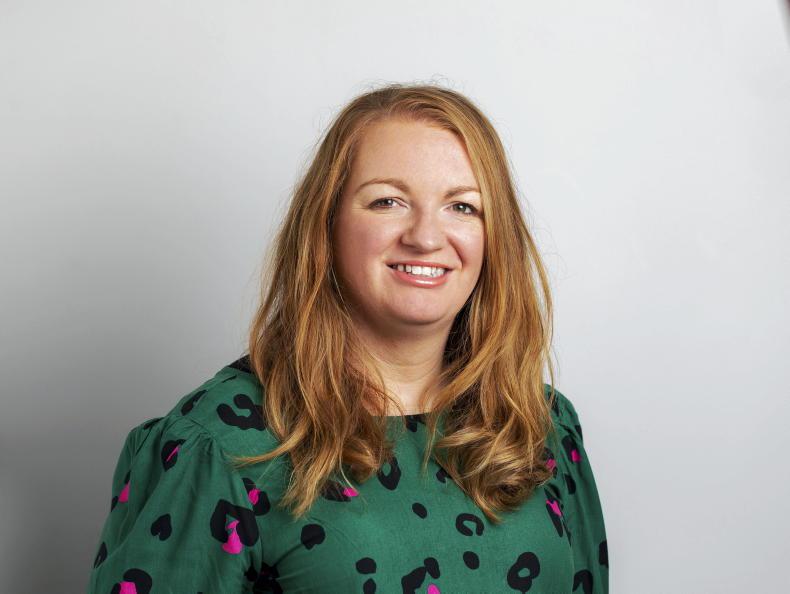Avoid the wait, evade the trolleys, see a doctor as soon as you step in… It can be the stuff of dreams for patients – particularly at busy times of the year in the emergency departments in our public hospitals.
In recent times, many private hospitals and medical insurance companies have opened A&E departments to look for this kind of business, but in the middle of a medical crisis how do you decide where to go? What exactly do private emergency departments treat and what do they not treat?
Some research into the subject suggests we would all need to have our homework done before any emergency arises if we are to make a good decision about public or private emergency care in the middle of a crisis.
Sticking up a list of the types of illness or injury that your nearest private A&E unit treats might be a good idea if you’re near enough to a motorway for such a thought to even enter your mind.
Evidence from providers’ websites suggests that having €500 in your back pocket might also be a good idea that day, as charges can vary depending on the treatment you need.
CLINICS IN FOUR CITIES
Dublin is well served, as one would expect, with VHI SwiftCare clinics in Dundrum and Swords. The Beacon Hospital in Sandyford and the Hermitage Clinic in Lucan now also offer A&E services as well as the Blackrock Clinic in south county Dublin.
There is a VHI SwiftCare clinic in Cork city too, and the Galway Clinic provides this kind of service in the west.
ADVANTAGES – SPEED AND CONSULTANT-LED SERVICE
But what are the advantages of attending a private clinic? The obvious one is that you won’t have to wait as long to be seen. Public hospitals operate a triage system, where those in most medical need are seen first. So, the length of your wait will depend on the severity of your problem or how busy the A&E department is.
Time-wise, several of the private clinics promise immediate access to a consultant’s opinion. Others promise only an hour’s wait, maximum. Actually seeing a consultant is part of the private package too.
So far mostly so good, but there are other factors to take into account. Obviously if you are too far from a private clinic it is going to make more sense to be treated locally, but if the motorway makes it a six of one/half a dozen of the other choice, then you have more options.
Car parking and coffee or tea may be free/included in the price in some private clinics as well.
DISADVANTAGES - COST CAN BE A CONSIDERATION
Cost can be a big factor, however. If you’re thinking that you’re going to be charged €100 in a public emergency department anyway, so why not go to a private one where you’ll only pay a consultation fee that’s a little bit higher – say €120 to €125 – don’t forget that costs for blood tests, X-rays, stitches and crutches are all added on.
A look at provider websites shows that X-ray charges start at €120 and that routine blood tests are around €50. Stitches cost €60 to €90 and plaster would set you back about €60 – all costs that are covered in a public A&E department under your once-off €100 admission fee.
Remember too, that follow-up outpatient appointments will carry a charge in a private A&E.
You could ratchet up €500 very easily at a private A&E, depending on what’s wrong with you, but most clinics have a cap of €480 to €500 on treatment. Some private clinics also offer a reduction if you’ve seen a GP first. Public emergency departments don’t charge you if you have a GP referral letter.
Knowing what exactly your private health insurance will cover if you’re admitted to private hospital from their private A&E would make good sense too.
Unless you have such insurance and the appropriate cover, you will have to foot the bill if you are admitted to the private hospital after attending its private A&E department. One night in the Beacon hospital costs €800, for example for “self-pay” customers. Some tax relief can be claimed on medical expenses that aren’t refunded through private medical insurance, however.
OPENING HOURS and treatments
Opening hours may be an issue as well. Some clinics only operate during the week, from 9am to 6pm, while others provide some Saturday or Sunday services – but middle of the night dashes to private clinics are not possible.
Private clinics are selective about who they treat, so when crisis hits it’s very much about making an informed decision about whether or not the medical problem is minor or major. See below for some pointers:
Go to a public A&E if you have
• Chest pain.• Difficulty breathing or loss of consciousness.• Serious head, back and neck injuries.• Severe stomach pain.• Severe burns.• Infants under 12 months.• Pregnancy-related conditions.• Hip, pelvic or thigh-bone fractures.• Have been in a road traffic accident.• Have psychiatric issues.• Call 999 for a public ambulance if you suspect a heart attack, as speedy treatment is essential. PRIVATE A&E CLINICS USUALLY TREAT
This can vary but usually includes:
• Fractures, sprains or possible breaks.• Cuts that need stitching.• Sports injuries.• Minor burns or scalds.• Eye and ear injuries.• Insect and animal bites.• Minor illnesses including fever, infections and rashes, joint, muscular and back pain.take NOTE
Some private clinics only treat those over 14 years of age.
No insurance?
What if you need to be admitted to hospital after being examined at a private A&E but have no insurance cover and cannot pay the bed charges? Can you easily transfer to a public A&E?
If this happens, you’ll have to go to a public hospital and wait. Even if you’ve had tests done in the private clinic, the public hospital doctors may want to repeat them.
A private perspective
We asked the Galway Clinic and VHI Swiftcare some questions about their services. While the Galway Clinic didn’t respond, these are the VHI answers.
Radius patients come from
“Ireland’s three VHI SwiftCare Clinics (at Cork, Dundrum and Swords) treated a total of 84,000 patients in 2016. In terms of radius, the majority of patients attend from a 10km radius, but records show that patients from as far away as Drogheda or Meath have been treated at the Swords Clinic, with the Dundrum Clinic treating patients as far South as Wexford. The Cork Clinic has treated patients from as far away as Dungarvan, Waterford to West Cork.”
Top-five conditions presenting
“The top-five conditions currently presenting at the clinics are soft-tissue injuries, fractures, sprains and strains, respiratory problems and minor cuts. Other patients present with non-skeletal presentations, minor burns, cuts that may require gluing or stitching, sports and occupations injuries and other non-urgent conditions. Approximately, 40% of patients require X-rays, which we can provide on-site.
“Walk-in patients can avail of appointment-led clinics, should they need further care by a specialist, and we can provide access to orthopaedic surgeons through our acute injury clinics for musculoskeletal injuries. We also provide clinics for sports medicine, maxillofacial surgical review and provide developmental checks for children.”
Why go private?
“In the most recent patient satisfaction survey carried out by all three VHI SwiftCare Clinics, speed of access and treatment were cited as the No 1 reason for attending the centres. Secondly, people viewed it as a good alternative to attending A&E, and thirdly they choose it because their injury suited the services available at the three VHI SwiftCare Clinics.”
if you can’t be treated
“Firstly, for injury we provide for internal referral for patients. We provide on-site referral for children with injuries to our in-house paediatric orthopaedic specialists and our trauma surgeons. Adult trauma and orthopaedic surgeons are also on site for adults in our acute injury clinics. Therefore most musculoskeletal injuries are managed on site.
“We also have access to a maxillofacial surgeon in our Dublin clinics, for facial injuries, and a sport physician for our patients with sports injuries, while also offering on-site physio and podiatry for patients.
Referral rate
“We have approximately a 3% referral rate, made up of those requiring further hospital treatment in the main (surgical intervention, for example) or those who would be outside of our current scope of practice ( what we don’t treat).
“VHI SwiftCare has also developed strong relationships with local hospitals to which referral may be necessary. We also work closely with the VHI Homecare team and can offer patients the option of care in the home if they meet the Homecare criteria for assistance and care in the home, and patients can also be referred to this service (for treatments like IV antibiotics at home) thus potentially avoiding the need for a hospital admission)
Seasonal injuries
Different seasons bring trends in different injuries and illnesses.
• Winter: sprains and fractures from falls on ice. • Spring/summer: sporting casualties, DIY injuries, trampoline or bouncy-castle injuries around Communion time. • September: children’s sporting injuries as they return to school and take up new activities.
Avoid the wait, evade the trolleys, see a doctor as soon as you step in… It can be the stuff of dreams for patients – particularly at busy times of the year in the emergency departments in our public hospitals.
In recent times, many private hospitals and medical insurance companies have opened A&E departments to look for this kind of business, but in the middle of a medical crisis how do you decide where to go? What exactly do private emergency departments treat and what do they not treat?
Some research into the subject suggests we would all need to have our homework done before any emergency arises if we are to make a good decision about public or private emergency care in the middle of a crisis.
Sticking up a list of the types of illness or injury that your nearest private A&E unit treats might be a good idea if you’re near enough to a motorway for such a thought to even enter your mind.
Evidence from providers’ websites suggests that having €500 in your back pocket might also be a good idea that day, as charges can vary depending on the treatment you need.
CLINICS IN FOUR CITIES
Dublin is well served, as one would expect, with VHI SwiftCare clinics in Dundrum and Swords. The Beacon Hospital in Sandyford and the Hermitage Clinic in Lucan now also offer A&E services as well as the Blackrock Clinic in south county Dublin.
There is a VHI SwiftCare clinic in Cork city too, and the Galway Clinic provides this kind of service in the west.
ADVANTAGES – SPEED AND CONSULTANT-LED SERVICE
But what are the advantages of attending a private clinic? The obvious one is that you won’t have to wait as long to be seen. Public hospitals operate a triage system, where those in most medical need are seen first. So, the length of your wait will depend on the severity of your problem or how busy the A&E department is.
Time-wise, several of the private clinics promise immediate access to a consultant’s opinion. Others promise only an hour’s wait, maximum. Actually seeing a consultant is part of the private package too.
So far mostly so good, but there are other factors to take into account. Obviously if you are too far from a private clinic it is going to make more sense to be treated locally, but if the motorway makes it a six of one/half a dozen of the other choice, then you have more options.
Car parking and coffee or tea may be free/included in the price in some private clinics as well.
DISADVANTAGES - COST CAN BE A CONSIDERATION
Cost can be a big factor, however. If you’re thinking that you’re going to be charged €100 in a public emergency department anyway, so why not go to a private one where you’ll only pay a consultation fee that’s a little bit higher – say €120 to €125 – don’t forget that costs for blood tests, X-rays, stitches and crutches are all added on.
A look at provider websites shows that X-ray charges start at €120 and that routine blood tests are around €50. Stitches cost €60 to €90 and plaster would set you back about €60 – all costs that are covered in a public A&E department under your once-off €100 admission fee.
Remember too, that follow-up outpatient appointments will carry a charge in a private A&E.
You could ratchet up €500 very easily at a private A&E, depending on what’s wrong with you, but most clinics have a cap of €480 to €500 on treatment. Some private clinics also offer a reduction if you’ve seen a GP first. Public emergency departments don’t charge you if you have a GP referral letter.
Knowing what exactly your private health insurance will cover if you’re admitted to private hospital from their private A&E would make good sense too.
Unless you have such insurance and the appropriate cover, you will have to foot the bill if you are admitted to the private hospital after attending its private A&E department. One night in the Beacon hospital costs €800, for example for “self-pay” customers. Some tax relief can be claimed on medical expenses that aren’t refunded through private medical insurance, however.
OPENING HOURS and treatments
Opening hours may be an issue as well. Some clinics only operate during the week, from 9am to 6pm, while others provide some Saturday or Sunday services – but middle of the night dashes to private clinics are not possible.
Private clinics are selective about who they treat, so when crisis hits it’s very much about making an informed decision about whether or not the medical problem is minor or major. See below for some pointers:
Go to a public A&E if you have
• Chest pain.• Difficulty breathing or loss of consciousness.• Serious head, back and neck injuries.• Severe stomach pain.• Severe burns.• Infants under 12 months.• Pregnancy-related conditions.• Hip, pelvic or thigh-bone fractures.• Have been in a road traffic accident.• Have psychiatric issues.• Call 999 for a public ambulance if you suspect a heart attack, as speedy treatment is essential. PRIVATE A&E CLINICS USUALLY TREAT
This can vary but usually includes:
• Fractures, sprains or possible breaks.• Cuts that need stitching.• Sports injuries.• Minor burns or scalds.• Eye and ear injuries.• Insect and animal bites.• Minor illnesses including fever, infections and rashes, joint, muscular and back pain.take NOTE
Some private clinics only treat those over 14 years of age.
No insurance?
What if you need to be admitted to hospital after being examined at a private A&E but have no insurance cover and cannot pay the bed charges? Can you easily transfer to a public A&E?
If this happens, you’ll have to go to a public hospital and wait. Even if you’ve had tests done in the private clinic, the public hospital doctors may want to repeat them.
A private perspective
We asked the Galway Clinic and VHI Swiftcare some questions about their services. While the Galway Clinic didn’t respond, these are the VHI answers.
Radius patients come from
“Ireland’s three VHI SwiftCare Clinics (at Cork, Dundrum and Swords) treated a total of 84,000 patients in 2016. In terms of radius, the majority of patients attend from a 10km radius, but records show that patients from as far away as Drogheda or Meath have been treated at the Swords Clinic, with the Dundrum Clinic treating patients as far South as Wexford. The Cork Clinic has treated patients from as far away as Dungarvan, Waterford to West Cork.”
Top-five conditions presenting
“The top-five conditions currently presenting at the clinics are soft-tissue injuries, fractures, sprains and strains, respiratory problems and minor cuts. Other patients present with non-skeletal presentations, minor burns, cuts that may require gluing or stitching, sports and occupations injuries and other non-urgent conditions. Approximately, 40% of patients require X-rays, which we can provide on-site.
“Walk-in patients can avail of appointment-led clinics, should they need further care by a specialist, and we can provide access to orthopaedic surgeons through our acute injury clinics for musculoskeletal injuries. We also provide clinics for sports medicine, maxillofacial surgical review and provide developmental checks for children.”
Why go private?
“In the most recent patient satisfaction survey carried out by all three VHI SwiftCare Clinics, speed of access and treatment were cited as the No 1 reason for attending the centres. Secondly, people viewed it as a good alternative to attending A&E, and thirdly they choose it because their injury suited the services available at the three VHI SwiftCare Clinics.”
if you can’t be treated
“Firstly, for injury we provide for internal referral for patients. We provide on-site referral for children with injuries to our in-house paediatric orthopaedic specialists and our trauma surgeons. Adult trauma and orthopaedic surgeons are also on site for adults in our acute injury clinics. Therefore most musculoskeletal injuries are managed on site.
“We also have access to a maxillofacial surgeon in our Dublin clinics, for facial injuries, and a sport physician for our patients with sports injuries, while also offering on-site physio and podiatry for patients.
Referral rate
“We have approximately a 3% referral rate, made up of those requiring further hospital treatment in the main (surgical intervention, for example) or those who would be outside of our current scope of practice ( what we don’t treat).
“VHI SwiftCare has also developed strong relationships with local hospitals to which referral may be necessary. We also work closely with the VHI Homecare team and can offer patients the option of care in the home if they meet the Homecare criteria for assistance and care in the home, and patients can also be referred to this service (for treatments like IV antibiotics at home) thus potentially avoiding the need for a hospital admission)
Seasonal injuries
Different seasons bring trends in different injuries and illnesses.
• Winter: sprains and fractures from falls on ice. • Spring/summer: sporting casualties, DIY injuries, trampoline or bouncy-castle injuries around Communion time. • September: children’s sporting injuries as they return to school and take up new activities. 









SHARING OPTIONS